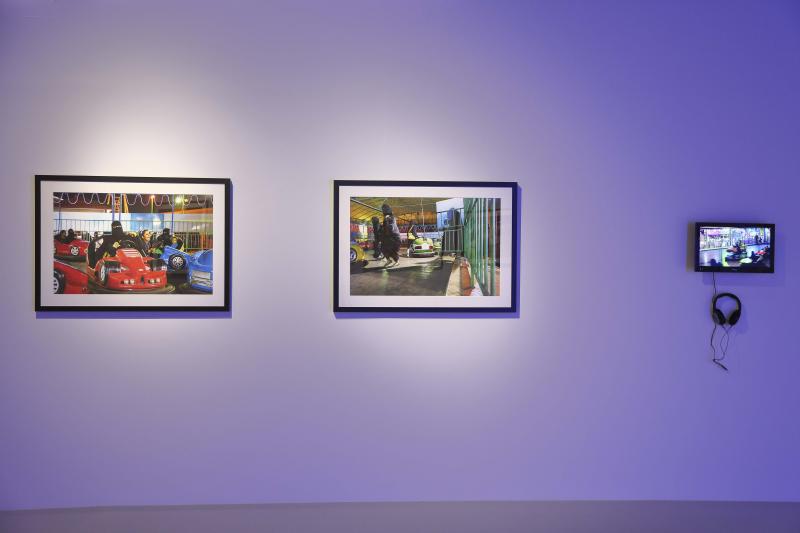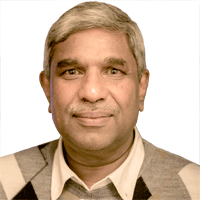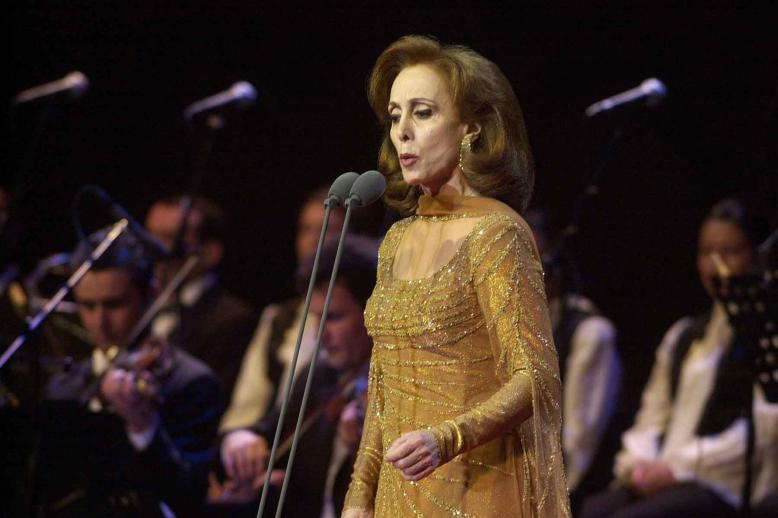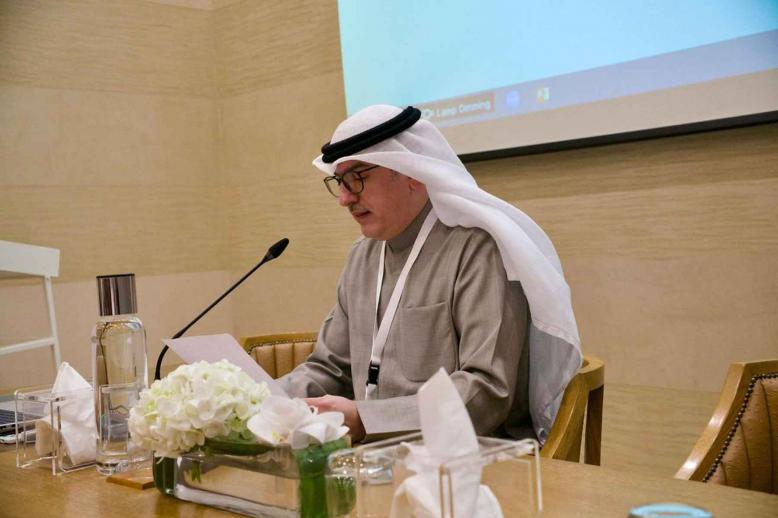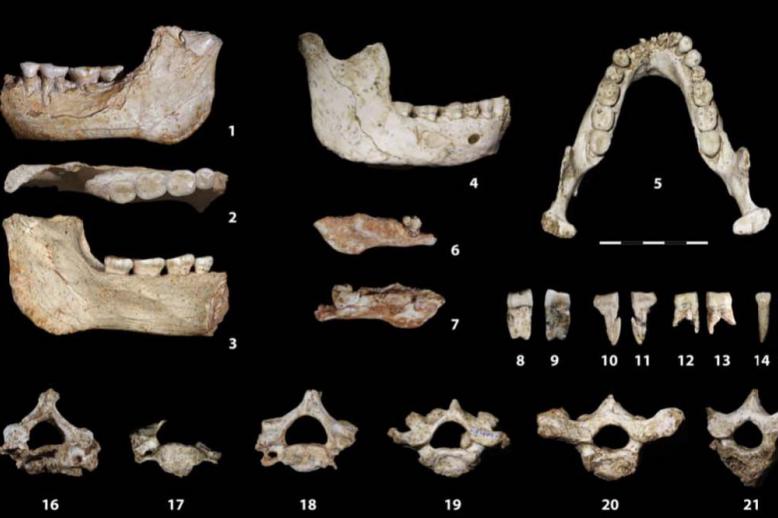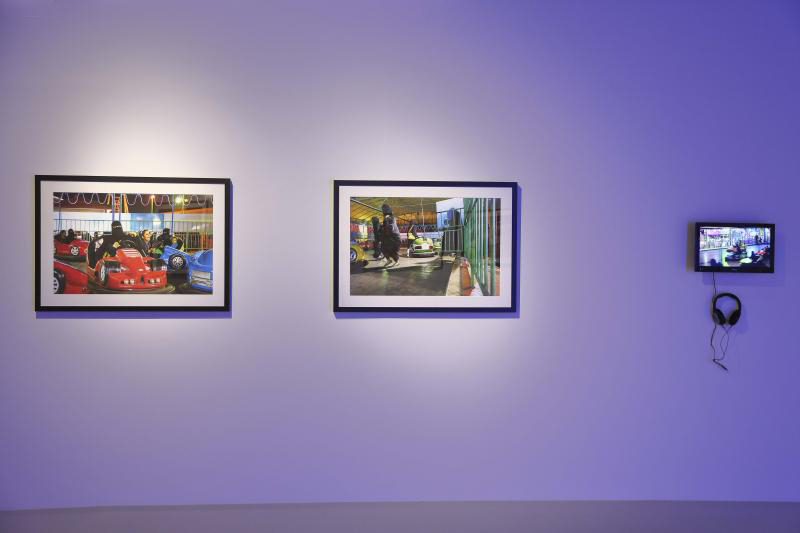Solo shows at Maraya delve into social change, dialogue across communities
DUBAI - Emerging artists Yaminay Chaudhri, from Pakistan, and Arwa al-Neami, from Saudi Arabia, are being featured in solo presentations through August 23 at Maraya Art Centre in Sharjah.
The exhibition, curated by Maraya Art Centre curator Laura Metzler and Aziz Sohail, an independent Pakistani curator, has an experimental format with projects by artists from different global regions alongside one another. This provides an opportunity to delve into the artists’ practices and opens dialogue across art communities.
“By having two projects that stand alone, rather than curating them within the same space, we were able to have two presentations that have strong identities on their own but softly touch on one another as you move through the spaces,” Metzler said.
Chaudhri’s “Rooms are Never Finished” analyses urban change in Karachi through Darakhshan Township, a middle-class neighbourhood, and its relationship with a nearby public beach.
Chaudhri, who has a degree in architecture and a master of fine arts degree in combined media studio arts from the United States, is co-founder of Tentative Collective, artists and curators whose work engages with the specificities and commonalities of Modernity in the rapidly growing cities of the global south.
Chaudhri said she draws on her experience growing up in Darakhshan Township and uses its architectural spaces and development to document social changes in the area. The township of 200 houses stands on land reclaimed from the Arabian Sea. Over three decades, the homes were renovated and expanded to reflect the aspirations of their residents.
She said most of the content comes from her personally witnessing “this architecture of aspiration” among the middle class amid the “shrinking of the collective public space, as well as the conversation at the vibrant Seaview beach enjoyed by the working-class masses.”
The resulting works consider how the aspirations at the core of this development is manifested through the evolution of the homes and their encroachment on vibrant public space — the “kitschy beach installations catering to patrons from a different social class; each with different visions of personal progress.”
Chaudhri said she felt the “hunger for capital supersedes being careful of ecological disasters. Diversity at the societal level disappears as well with the slow gentrification of the surrounding space and the beach becomes prime property.”
The artist is caught between two disparate worlds of aspirations, which she captures through conversations with neighbours as well as vendors and visitors at the beach. Digital media are used to great effect to bring the conversations alive and there are floor plans and architectural drawings detailing the expansion of the township, apartment by apartment.
Neami in her exhibition titled “Liff” — meaning “How to Turn the Direction,” presents work from her “Never Never Land” series that focuses on the annual fun fair in Abha, Saudi Arabia. It is part of the city’s summer festival Neami has been documenting since 2013.
This iteration of the project presents photographs and videos that analyse the fair as a culmination point of aspirational structures within Saudi society through the architectural space and experience of the park.
An interesting finding by Neami was that Saudi women in bumper cars loved driving around for the sheer pleasure of driving — before the ban on women driving was lifted in Saudi Arabia — and did not like it when others bumped in to them.
As a self-made artist from Asir province, Neami had to struggle for acceptance in the regional contemporary art scene. In 2005, she won the Southern Region Arts Award and later moved to Jeddah to present work that delved into socio-political issues.
Neami found her niche in sound, video and photo installations that she said were suited to catch the flavour of her contemporary world view. Her work has been exhibited internationally and regionally in many group shows. The “Never Never Land” series has been shown in London (2014), Munich (2015) and Tehran (2016).
Neami said she was delighted and proud at the opening of her first solo exhibition. “Now it is my turn… I wanted this project to go everywhere,” she said.
Neami said the social reforms in Saudi Arabia began with the arts scene. She said this would open many opportunities for young Saudi artists.
“At the core, the dialogue is about the use of physical documentation as an index for larger social change in each of these societies but you also start seeing material connections and the reference to the private-domestic,” Metzler said. “This doesn’t collapse them into one show, however, because the method of documentation and the presentation of it is so different.”
“The circumstances and stakes of each discussion are maintained, as are the individual experiences of the artists in their own communities. You can easily see where each one ends and the next begins but they each hold the reflection of one another and that’s where the success is,” she said.
Metzler said several repeat visitors have wanted to sit with the projects. “I’m looking forward to seeing more conversations develop as the shows continue,” she said.
N.P. Krishna Kumar is an Arab Weekly correspondent in Dubai.
This article was originally published in The Arab Weekly.


